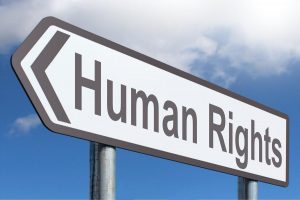Happy Birthday to the Human Rights Act

The Human Rights Act is 20 years old this year. Its name is often used in vain, “it’s against my human rights!” or blamed for something that probably isn’t to do with the Act at all. The Act sets out the fundamental rights and freedoms to which everyone in the UK is entitled.
Where did the law come from?
The legislation was passed in 1998. Before that, you may have had to go to the European Court of Human Rights in Strasbourg rather than a British court if you thought your human rights had been breached.
What rights are protected?
A wide range of rights are protected, these include:
- Right to life
- Freedom from torture
- Freedom from slavery
- Respect for private and family life
- Freedom of thought, belief and religion
- Freedom of expression
- Protection from discrimination
How is this relevant to criminal law?
The Act can have extensive application to criminal law; many underlying principles are supported by the protected rights in the Human Rights Act. One of the most important being the right to a fair trial.
An accused person is always innocent until proven guilty and has the right to hear the evidence against them. Whilst some of these rights were of course already an integral part of English criminal law, the European legal system has played an important part in developing this area of law.
Some other examples of important rights established in the Human Rights Act are freedom of speech and of assembly which may become relevant in some public order offences. Recently we have seen this utilised very well in cases involving protests in relation to fracking.
As well as protection from discrimination –offences may become more serious if they are racially aggravated or where a persons’ protected characteristic is targeted by an offender. This can have an impact when the officer is deciding on what offence they should charge the offender and also in sentencing.
How else is the Act used?
The legislation is there to challenge injustices, Hillsborough is probably one of the better-known examples where the Act was used by the families to secure an inquest.
It has been extensively argued in diverse cases such as seeking confirmation over questions on assisted suicide and euthanasia, keeping elderly couples together in nursing homes, and preventing extradition to countries that have the death penalty. It is also likely to be used in respect of Windrush and Grenfell Tower inquiries.
How Tuckers Solicitors can help you…
To discuss anything to do with the Human Rights Act please contact us on 020 7388 8333 or email info@tuckerssolicitors.com and we will gladly assist.
Our offices are open 24 hours a day, 7 days a week, ready to deliver immediate and expert legal advice and representation.